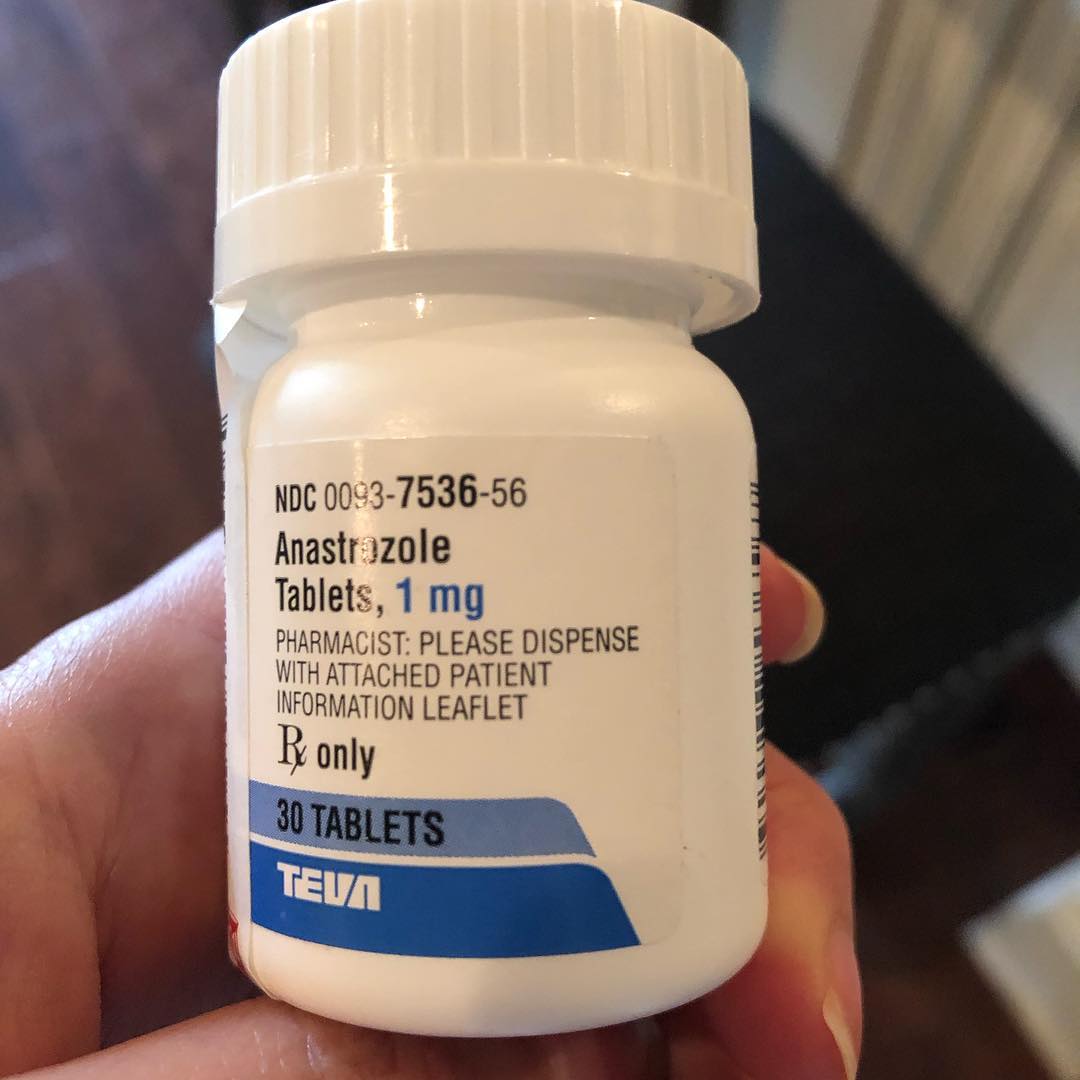Anastrozole is a medication commonly prescribed for treating breast cancer in postmenopausal women. As an aromatase inhibitor, it works by decreasing the amount of estrogen produced in the body, thus reducing the growth of estrogen-dependent tumors. The effectiveness of anastrozole can be influenced by one’s diet and the foods consumed while taking this medication. Therefore, it is essential to learn which foods to avoid when taking anastrozole to ensure optimal results and treatment success.
A well-balanced diet is crucial for overall health, but certain foods may interact with anastrozole, impacting its efficacy. Foods that could potentially interfere with this medication include those that naturally contain or promote the production of estrogen, as well as foods that affect the absorption or metabolism of anastrozole. Knowledge of these specific foods and their effects on the drug can help individuals make informed dietary choices and maintain the best possible treatment outcomes.
Reader's Roadmap
Understanding Anastrozole
Anastrozole is a medication that belongs to a class of drugs known as aromatase inhibitors. It is commonly prescribed for the treatment of hormone receptor-positive breast cancer in postmenopausal women. By inhibiting the action of the enzyme aromatase, this medicine effectively reduces estrogen levels in the body, helping to slow the growth of cancer cells that are reliant on estrogen to proliferate.
Aromatase inhibitors, such as anastrozole, work by targeting the conversion of androgens into estrogens through a process called aromatization. This reduction in estrogen production is crucial for managing hormone-sensitive breast cancers and has been proven to be effective in reducing the risk of recurrence.
When taking anastrozole, it is essential to be mindful of the potential interactions that can occur between the medication and certain foods or supplements. Although it is generally well-tolerated, there are specific dietary considerations to be aware of when incorporating anastrozole into your treatment plan.
Some of the foods to avoid when taking anastrozole include alcoholic beverages, grapefruit and its juice, high-fat meals that may hinder anastrozole absorption, calcium-rich foods and supplements, iron-rich foods, and iron supplements. In particular, soy products should be avoided, as they may contain phytoestrogens, which can mimic the effects of estrogen in the body and potentially interfere with the efficacy of anastrozole treatment.
In conclusion, understanding the role of anastrozole as an aromatase inhibitor in the treatment of hormone receptor-positive breast cancer is crucial for ensuring optimal results. Paying attention to dietary considerations and being aware of potential interactions will help maintain the efficacy of this vital medication and support the journey toward recovery.

Potential Side Effects of Anastrozole
Common Side Effects
Anastrozole is a medication commonly used for treating hormone receptor-positive breast cancer. However, it comes with its own set of potential side effects. Common side effects of Anastrozole include joint pain, hot flashes, headache, nausea, and vomiting. These symptoms are relatively mild and may subside over time as the patient becomes accustomed to the medication. It is essential for patients to be aware of these side effects and discuss them with their healthcare provider if they become bothersome.
Serious Side Effects
In addition to the common side effects mentioned above, Anastrozole can also cause more severe side effects that warrant immediate medical attention. One such serious side effect is swelling in the hands, face, or mouth, which might signal an allergic reaction to the medication. Patients experiencing this should contact their healthcare provider immediately.
Another serious side effect is itching, dryness, and changes in the skin, which may indicate a more severe reaction to Anastrozole. Moreover, patients taking Anastrozole may be at an increased risk of a heart attack. Those with a history of ischemic heart disease are urged to use caution when taking this medication, as it may worsen their condition.
Lastly, individuals taking Anastrozole may experience depression and mood changes as a side effect of the medication. As with any side effects, it’s crucial for patients to communicate with their healthcare providers and assess the best course of action for managing these symptoms.
Interactions with Anastrozole
Food Interactions
When taking anastrozole, it is important to consider potential food interactions. Although specific food items to avoid have not been listed, it is crucial to maintain a balanced diet. Some medications’ effectiveness can depend on the diet, so discuss any dietary concerns with your healthcare professional to ensure the best outcomes while using anastrozole.
Drug Interactions
Drug interactions should be closely monitored while taking anastrozole. There are 20 known drugs that interact with anastrozole, including 17 major interactions and 3 moderate ones. Among these are interactions with tamoxifen, a medication commonly used for similar purposes in breast cancer treatment. Using tamoxifen and anastrozole together is not recommended due to the potential for decreased effectiveness or increased side effects.
Alcohol may also interact with anastrozole. Although only one known alcohol interaction has been identified, it is essential to discuss with your healthcare provider whether consuming alcohol during treatment is advisable.
Taking nonprescription and over-the-counter (OTC) medications, as well as supplements, should be done with caution while using anastrozole. Make sure to inform your healthcare professional of all drugs and supplements you are taking to prevent possible interactions.
In conclusion, always discuss potential food and drug interactions with your healthcare provider when using anastrozole. This will allow you to make informed decisions regarding your treatment, ensuring the best possible outcomes.
Foods to Avoid When Taking Anastrozole

Caffeine and Dehydration
While taking Anastrozole, it is essential to pay attention to caffeine intake, as it can lead to dehydration. Dehydration can increase the side effects of this medication, such as dizziness, fatigue, and headaches. It is advisable to limit the consumption of coffee, tea, energy drinks, and soda, as these beverages often contain high levels of caffeine. Instead, opt for water, herbal tea, or other non-caffeinated drinks to maintain proper hydration while on this medication.
Foods Impacting Cholesterol Levels
Anastrozole may cause an increase in cholesterol levels, and therefore, it is crucial to avoid foods high in saturated and trans fats. Consuming high-cholesterol foods can exacerbate the risk of developing cardiovascular complications. Focus on incorporating heart-healthy options such as:
- Fruits and vegetables
- Whole grains
- Lean proteins (like poultry and fish)
- Nuts and seeds
- Legumes
Additionally, be cautious of processed foods, fast food, and fried foods, as they often contain unhealthy fats that can negatively impact cholesterol levels.
Foods Affecting Bone Health
As Anastrozole can potentially lead to reduced bone mineral density and increased risk of osteoporosis, care should be taken with dietary choices impacting bone health. It is essential to consume foods rich in calcium and vitamin D to maintain and support strong bones. Good sources of calcium include:
- Dairy products (if tolerated)
- Leafy green vegetables (such as kale and spinach)
- Calcium-fortified drinks and foods (like almond milk and orange juice)
Furthermore, ensure adequate vitamin D intake by consuming fatty fish, fortified dairy products, or eggs. It is also a good idea to discuss the possibility of vitamin D supplementation with your healthcare provider, especially if you have limited sun exposure or existing bone health concerns.
In summary, while taking Anastrozole, it is important to monitor caffeine consumption, avoid foods that can negatively impact cholesterol levels, and make wise dietary choices to support bone health.
Special Considerations
Dosage and Missed Dose
The dosage of Anastrozole varies based on the individual’s medical condition and response to treatment. It is important to follow the doctor’s instructions and take the medicine exactly as prescribed. In case of a missed dose, take it as soon as you remember, unless it is close to the time of your next dose. Do not double up the dose to catch up, as this can result in adverse side effects.
Storage Recommendations
Anastrozole should be stored at room temperature, away from light and moisture. Keep the medication out of the reach of children and pets. If the medication has expired or is no longer needed, consult your pharmacist or local waste disposal company for the proper disposal methods.
Anastrozole and Pregnancy
Anastrozole should not be used during pregnancy, as it may cause harm to the unborn baby. Women of childbearing age should use reliable forms of birth control while undergoing treatment with this medication. If you become pregnant or suspect pregnancy during treatment, consult your doctor immediately. Additionally, breastfeeding is not recommended during Anastrozole treatment, as it is unknown whether the drug passes into breast milk.
Precautions for Men and Children
Although Anastrozole is primarily prescribed for postmenopausal women, it is important to note that it can also be used in certain situations involving men and children. In men, Anastrozole may be prescribed to treat hormonal imbalances, such as gynecomastia or testosterone deficiency. In children, the drug may be used to treat hormonal conditions like McCune-Albright Syndrome or precocious puberty. Regardless of gender or age, it is crucial to follow the doctor’s prescribed dosage and discuss any potential side effects or precautions before commencing treatment.

Managing Side Effects of Anastrozole
Anastrozole is an effective medication used to treat certain types of breast cancer in postmenopausal women. It works by inhibiting the production of estrogen, which is essential for estrogen receptor-positive breast cancer cells to grow. However, some patients experience side effects from this medication, and it’s crucial to manage these symptoms to maintain overall health.
One of the significant side effects of anastrozole is the risk of developing bone density problems. Since estrogen plays a vital role in maintaining strong bones, reducing its production can lead to weaker bones and a higher risk of osteoporosis. Patients should consult their doctors to check their bone health and determine appropriate actions, such as regular exercise, calcium supplementation, or vitamin D intake, to maintain bone density.
Another concern for patients taking anastrozole is an increased risk of heart disease due to higher cholesterol levels. Individuals with a history of ischemic heart disease should exercise caution when using the medication, and work with their healthcare professional to monitor their cholesterol levels regularly. In some cases, prescribing alternative aromatase inhibitors or managing cholesterol with medication might be necessary.
Liver function should also be monitored for patients using anastrozole since the medication may exacerbate existing liver disease. Regular blood tests and doctor visits can help track any liver issues and ensure the continued safety of the medication.
The management of side effects is essential to ensure the best quality of life and successful treatment outcomes for patients using anastrozole. By working closely with a healthcare professional, individuals can develop appropriate strategies to take care of their bone health, heart disease risk, and liver function while receiving the benefits of the medication.
Closing Remarks
In recent years, the importance of dietary choices has gained significant attention in the field of current health topics. Research advancements have demonstrated that a well-balanced diet can play a crucial role in medication effectiveness, including for those taking Anastrozole.
When taking Anastrozole, it is essential to maintain a healthy diet and be aware of potential food interactions. By focusing on nutrient-rich foods and avoiding those that may contribute to side effects, individuals on this medication can optimize its benefits and minimize potential drawbacks.
Moreover, the effects of various foods on Anastrozole’s efficacy are still being studied, and findings may evolve over time. It is essential for patients to stay informed and communicate with their healthcare professionals about their dietary choices and how they may impact their treatment.
In the realm of health research, new insights are constantly being generated. As a result, it is crucial to stay up-to-date with the latest information on Anastrozole and diet, seeking out reliable sources and consulting with healthcare providers before making any significant changes in one’s nutrition.
By maintaining this proactive approach to one’s dietary choices while taking Anastrozole, patients can ensure the best possible outcomes for their treatment and overall health.







Leave a Reply
View Comments